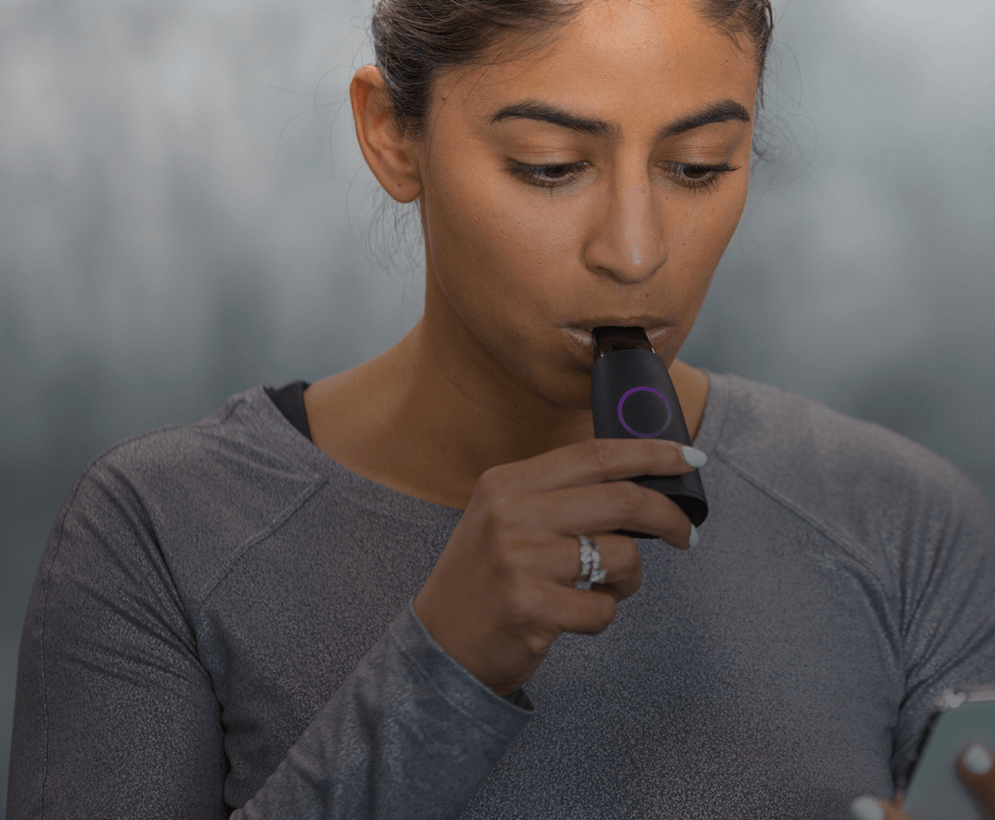



Backed by science
Trusted by researchers
Explore the cutting-edge research and peer-reviewed studies that support Lumen and its impact on metabolism and wellness.
Research partnerships with leading institutions in the scientific community to advance the understanding of metabolism and drive innovation in wellness.
The CO2 concentration is measured using a unique breath maneuver, which is performed by inhaling a fixed volume of air through the Lumen device (dynamic to each individual), holding it for 10 seconds, and exhaling fully.
By measuring the CO2 level with the exhale flow rate, Lumen identifies the source of energy the body is using, carbs or fats.
Lumen has been validated in peer-reviewed research to match the gold standard of measuring RER.

.png)
Developed by researchers, Lumen uses RER as the core data point to bring the same measurement to a home environment by measuring the CO2 in your breath through the sensor and flow meter
Unlike metabolic carts, Lumen measures breath CO2 in under 30 seconds, providing real time data.
Measurements can be taken in a lab or remotely, and results are delivered in real time through a simplified research-friendly version of the Lumen app. Data is also stored for later reference.
Lumen does not measure oxygen levels or consumption.

Use the Lumen device in your research, or do a joint research project with us